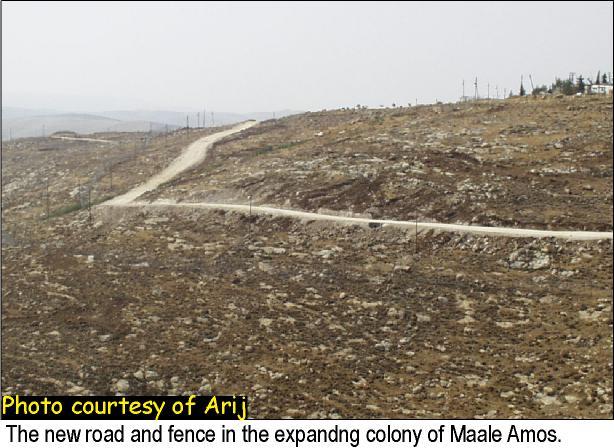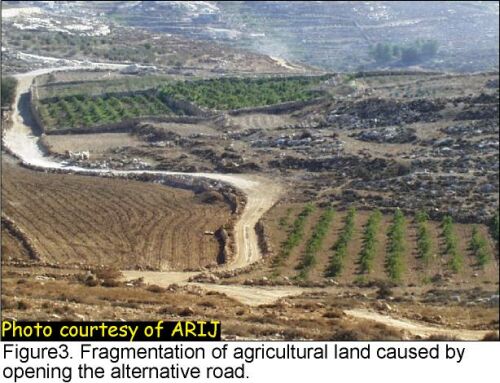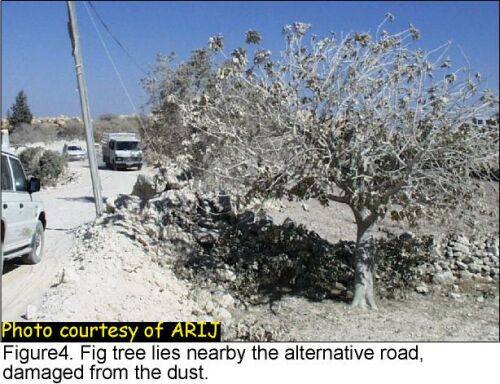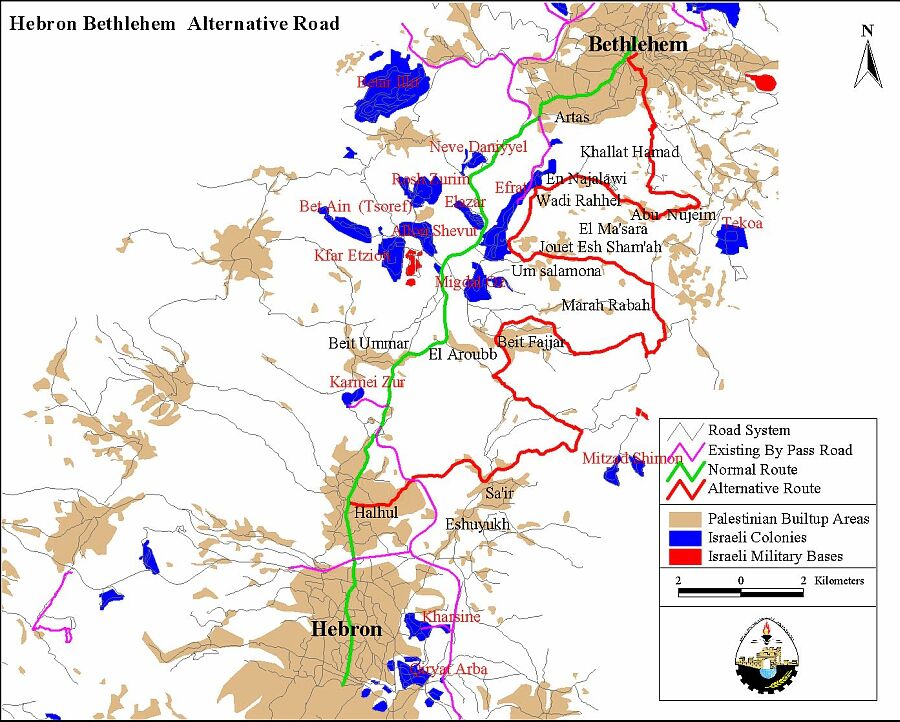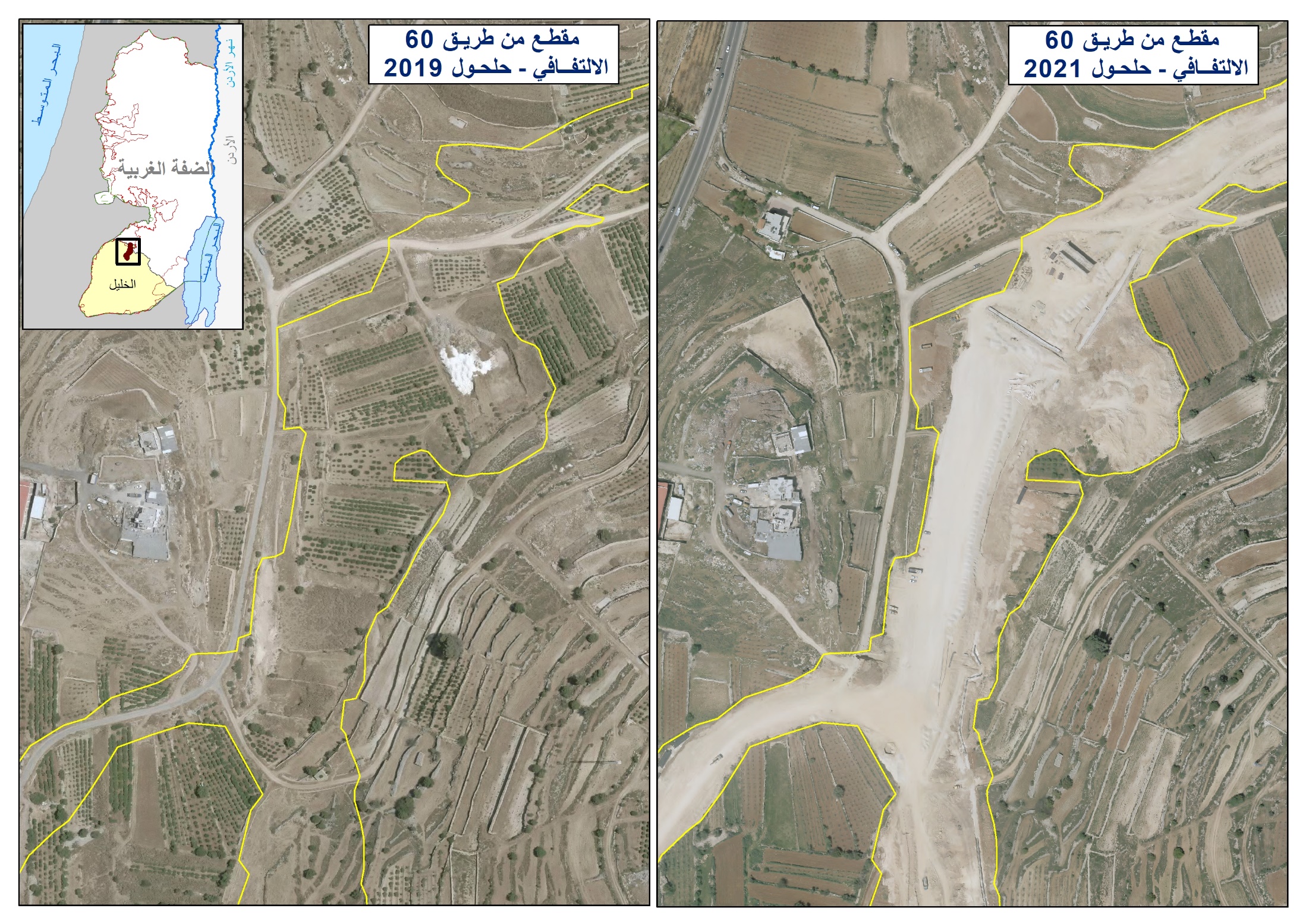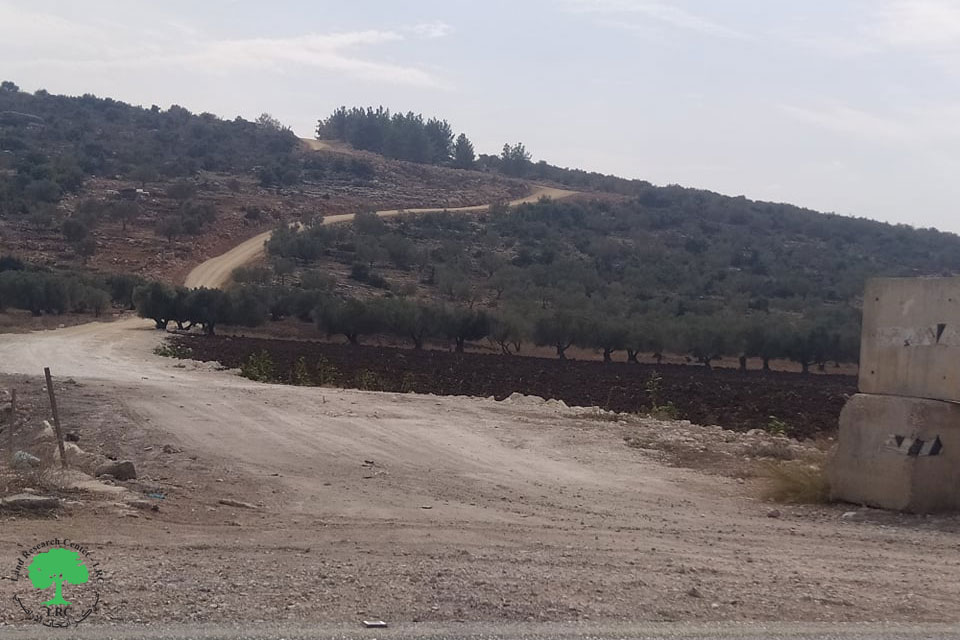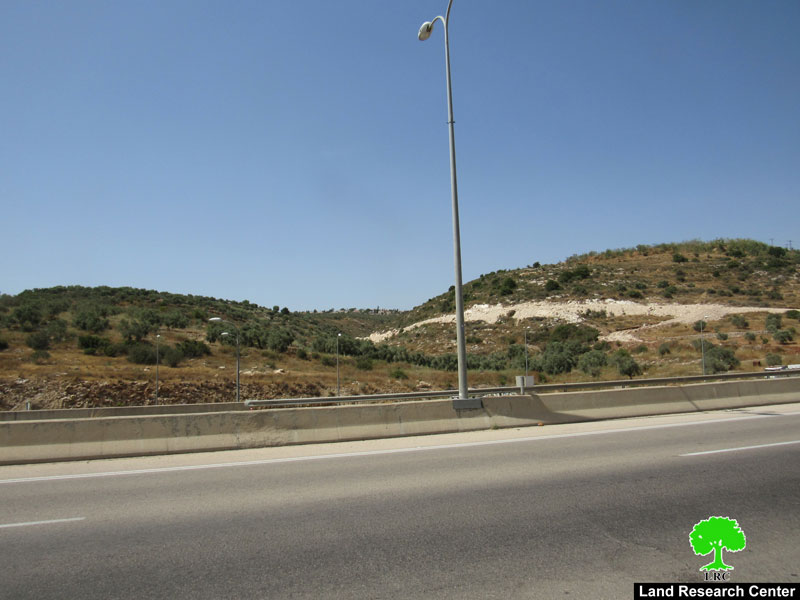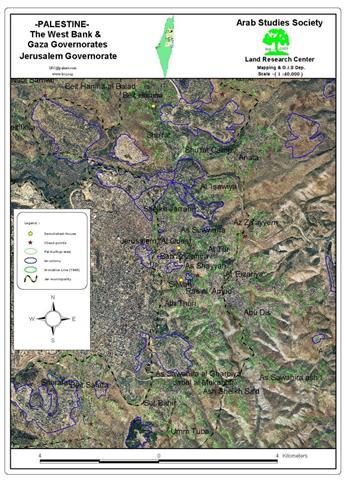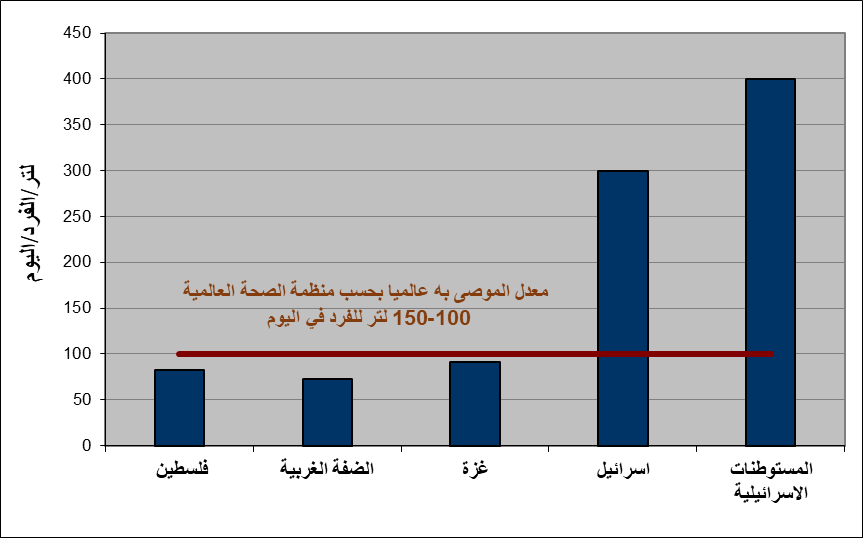''I always opposed and will always oppose collective punishment''
Minister of defense Benyamin Ben-Eliezer (Voice of Israel, March2001)
Since the beginning of the Al-aqsa Intifada in September 2000, the Israeli government has implemented a series of harsh measures against Palestinian civilians. Closure, roadblocks and restriction on movement between main Palestinian cities and towns have been imposed exacerbating daily suffering. These restrictions deny the Palestinians basic human rights, such as their right to work, to education and to proper medical treatment.
To overcome the closures, Palestinians were forced to open alternative track roads in order to get from one place to the other. Most alternative roads are unpaved, dangerous, long and inconvenient to travel. The alternative road led by Palestinians from Bethlehem area to Hebron is a clear example of the hardship that Palestinians are encountering.
Lots of dust is spread as cars or people travel on such roads, especially that these roads have been randomly dug by local inhabitants. The dust produced is irritating to the eyes and hazardous to breathe. Also, such roads pose an environmental problem to the nearby area. Moreover, alternative roads are dug in agricultural lands, causing more fragmentation of land needed for cultivation.
This in return distorts productive land use as well as damages the plants and fruit trees found in the surrounding area. The dust blocks the plants' pores (stomata) and disrupts the photosynthesis process.
Due to closure, thousands of Palestinian students, farmers and workers have been forced to go through alternative roads, which will become more difficult to travel during wintertime.
Before Al-Aqsa Intifada, people from Bethlehem area going to Hebron used to spend 20 minutes on the road and used to pay 5 NIS ($1.25) for the trip. Now, on the other hand, it costs 30 NIS ($7.5) to reach the same destination, which many people cannot afford, due to the dire economic situation in the Palestinian Territories. Also, the time to travel such roads is prolonged as well, where it takes 4 hours to travel from Bethlehem to Hebron; 16 Km difference. (See map). This puts the lives of many sick people in danger. The most austere cases are those of pregnant women who end up delivering on the road because they couldn't reach the hospital on time.
The green line shows the original road from Bethlehem to Hebron, 26 Km length, while the red shows the alternative road with 44 Km in length.
Consequently, people's lives have been disrupted, where employees and students are facing difficulties to reach their workplace and universities on time, sometimes they cannot even make it there. This has forced some students to leave universities as it has become both unfeasible and expensive to get to their academic institutions.
It has been clear for the past twelve months that the policy of collective punishment adopted by the Israeli government has adversely affected all sectors of Palestinian life and communities. Such Israeli oppressive policies not only violate International laws but also cause a lot of frustration and despair for Palestinian people who cannot even enjoy the right of visiting their families or friends because of strict closure policies.
Related topics:
The Blockade's Role in Segregating the Palestinian Territories
Prepared by:
The Applied Research Institute – Jerusalem


